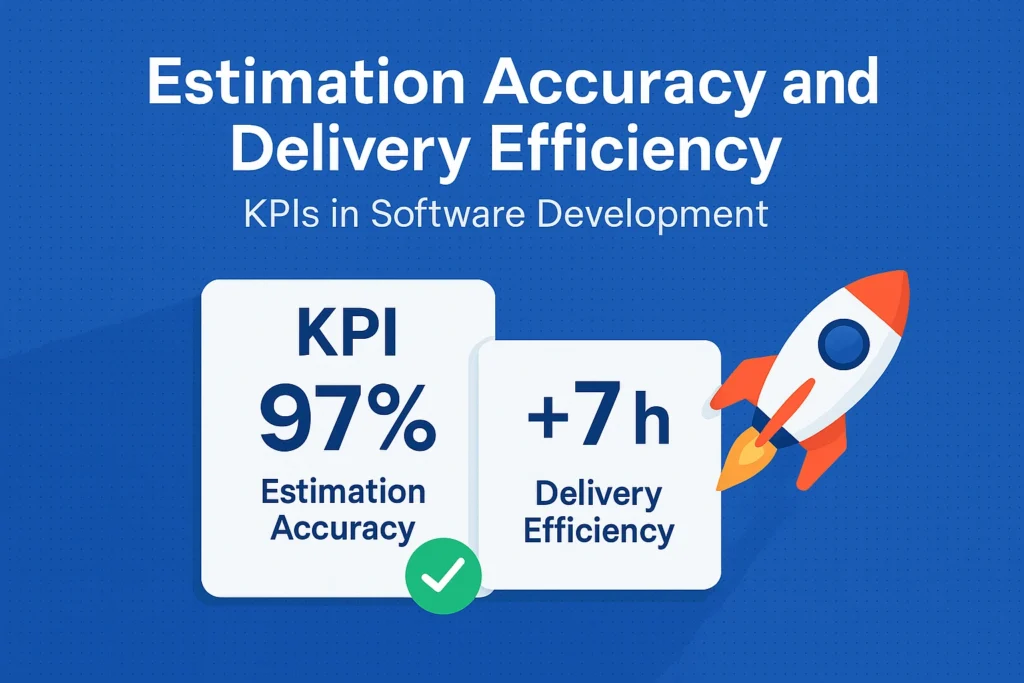In today’s fast-paced world, digital transformation is crucial for business success. As technology evolves and consumer behaviors shift, companies in every sector are recognizing the profound impact of digital technologies. By embracing digital transformation, businesses can not only enhance their efficiency but also spark innovation and remain agile in a constantly changing market. This vital shift enables them to connect more deeply with customers, meet their needs, and ultimately thrive.
This post will explore how digital transformation can accelerate business growth. We will focus on key areas of impact, share real-world examples, and provide practical tips for organizations looking to thrive in this digital age.

Understanding Digital Transformation
Digital transformation is about fully integrating digital technologies into every part of a business. It changes how companies work and how they deliver value to customers. This process goes beyond just using new tools. It requires rethinking how things are done, including company culture and how customers are engaged.
To succeed, organizations need to shift their mindset. They must challenge the status quo, experiment with new ideas, and adapt to fresh ways of working. By embracing this change, businesses can thrive in a competitive landscape.
1. Enhancing Operational Efficiency
One key benefit of digital transformation is improved operational efficiency. By automating repetitive tasks, businesses can simplify workflows and cut costs. Technologies like Artificial Intelligence (AI), Machine Learning (ML), and Robotic Process Automation (RPA) help organizations optimize their processes.
For example, a manufacturing company installed IoT sensors on its production lines. This change allowed them to monitor equipment performance in real time. As a result, predictive maintenance cut downtime by 30% and significantly lowered operational costs. The company also used data insights to enhance its production schedules. Consequently, they achieved better resource allocation and increased output.
2. Driving Innovation
Digital transformation encourages a culture of innovation by equipping businesses with the tools and insights needed to create new products and services. Companies that use digital technologies can analyze market trends and customer preferences in real time. This capability allows them to respond quickly to changing demands. Additionally, by understanding customer needs, businesses can innovate more effectively and stay ahead of the competition.
A retail chain embraced a data-driven approach to product development. It tracked consumer behavior through analytics to analyze purchasing patterns. This analysis revealed gaps in its product offerings. As a result, the company created new lines that appealed to its target audience. This innovation boosted sales and improved the brand’s reputation as a leader in market responsiveness.
3. Improving Customer Experience
In today’s competitive landscape, delivering an exceptional customer experience is crucial for business growth. Digital transformation allows businesses to engage with customers in more meaningful ways. This approach enhances interactions and improves the overall journey, ultimately leading to greater satisfaction and loyalty.
- Personalization is crucial for businesses today. By utilizing data analytics, companies can craft tailored experiences for their customers. For instance, streaming services like Netflix use algorithms to analyze viewing habits. This enables them to recommend content based on individual preferences, which ultimately boosts user satisfaction and retention.
- Omni-channel engagement is essential for today’s businesses. Companies can link various customer touchpoints, such as websites, mobile apps, social media, and in-store interactions, to create a seamless experience. This strategy ensures customers receive consistent messaging and service, regardless of how they interact with the brand.
4. Facilitating Data-Driven Decision Making
In the digital age, data is a crucial asset for driving informed decision-making. As a result, digital transformation equips businesses with advanced analytics tools. These tools not only offer actionable insights but also help leaders make smarter, more strategic decisions. Furthermore, they provide a deeper understanding of market trends and customer behaviors, allowing companies to stay ahead of the competition.
- Predictive analytics helps organizations forecast trends and identify opportunities while mitigating risks. For example, an e-commerce company can analyze past sales data to predict future product demand. This allows them to optimize inventory management and reduce excess stock.
- Real-time feedback tools allow businesses to gather customer input instantly. This enables them to make quick adjustments as needed. Such responsiveness fosters a customer-centric culture, enhancing loyalty and trust.
5. Expanding Market Reach
Digital transformation opens new avenues for businesses to reach and engage with customers globally. With digital channels, companies can expand their market reach beyond the geographical limitations of traditional sales models. Consequently, they can tap into a larger audience and boost growth.
Example: A small artisan brand that once relied on local markets embraced e-commerce and social media marketing. By creating an online store and leveraging platforms like Instagram and Facebook for promotions, the brand reached customers in different countries. This digital presence not only increased sales but also enhanced brand awareness and recognition.
6. Enhancing Collaboration and Communication
Digital transformation promotes a collaborative work environment by breaking down silos. It enhances team communication, allowing members to work together more effectively. For instance, tools like cloud computing, project management software, and instant messaging applications support collaboration. As a result, teams can easily connect and share ideas, no matter where they are located.
- Remote work enablement became crucial during the COVID-19 pandemic. As a result, many companies quickly adopted remote work solutions. Those that had already embraced digital transformation were better prepared. Consequently, they transitioned smoothly, maintaining productivity and collaboration among employees. This adaptability highlighted the importance of technology in supporting flexible work environments.
- Cross-functional teams benefit from digital tools that bring together various skills. This collaboration helps tackle challenges and drive innovation. As a result, creativity flourishes, and problem-solving becomes faster. Overall, this approach enhances business agility.
Conclusion
Digital transformation is more than a trend; it is a crucial shift that organizations need to embrace to remain competitive. It improves operational efficiency and drives innovation while enhancing the customer experience. Companies can make better decisions using data. Furthermore, they can expand their market reach and improve collaboration. These factors ultimately help businesses grow faster.
At NetForemost, we specialize in helping organizations navigate their digital transformation journeys. Our expertise spans various technologies and solutions, ensuring that we tailor solutions to meet your unique needs.
To explore how our digital transformation services can accelerate your business growth, we invite you to book a call with us today. Let’s discuss how we can partner to drive innovation and enhance your operational capabilities.
Embracing digital transformation requires a commitment to continuous learning and adaptability. It also means investing in the right tools and strategies. With the right approach, your business can use digital transformation to achieve sustainable growth. This will help create lasting value for your customers.






